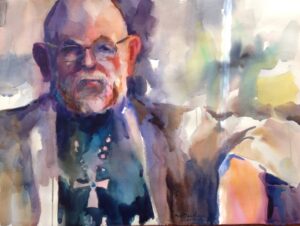
MBTI Compatibility ENFP & INFP
Common assumptions about choice of mate are suggested by two common phrases: Birds of a feather flock together; opposites attract. When considering Personality Type differences we may see that sometimes, both are true for some couples. This article discuss MBTI Compatibility ENFP & INFP.
First we will discuss how dominant Extroverts and dominant Introverts can learn to get along. At the base of any disagreements is the fact that these two types are energized opposite ways.
It is just as the labels suggest. Extroverts are energized in the outer world interacting with other people. Introverts are energized while alone nurturing their inner selves.
The classic differences are usually described in relationship to attendance at parties and other gatherings. Extroverted types arrive early, talk to everyone, and are among the last to leave, exhilarated. Introverted types arrive late, perhaps talk to just a few others or maybe only one or none, and leave early exhausted.
Another difference reveals itself in conversations. I can tell you, being a strong Extroverted type, that I almost can’t think without speaking or writing. If you start a conversation with me, especially by asking a question, I immediately begin to speak. What you hear will not be my best thought. I’m just getting warmed up. I used to tell my late wife (INFP)“Remember, dear, I don’t know it’s stupid until I hear myself say it!”
Introverts are the opposite. They think internally to themselves, considering the alternatives. The first thing you get is silence. When they do speak it is their best thought already formed.
Thus if, as an Extrovert, and you wish to have a serious conversation with an Introvert, it is best to suggest a time in the future. Then when the appointed time arrives limit your speaking to leave room for the Introvert because they are not liable to interrupt you.
Meanwhile, it is helpful for Introverted types to know these things about their Extroverted companions. Try to be understanding when they cut into your comments. You might go so far as to make a time out sign when we Extroverts have not let you speak.
Friendships are another area of comparison that may be more alike that they seem. We Extroverted types typically have lots of friends. We make them easily and worry ourselves about the relationships hardly at all. Introverts find it more difficult to make friends because they are not interested superficial connections. They can rise to the occasion and make small talk but don’t really like it. They want the deeper inner connection with more meaningful conversations.
The relationship between an ENFP (Extraverted, Intuitive, Feeling, Perceiving) and an INFP (Introverted, Intuitive, Feeling, Perceiving) can be a fascinating and harmonious one, marked by deep emotional connections, shared values, and mutual understanding. Both personality types belong to the Idealist temperament group, which places a strong emphasis on personal growth, authenticity, and meaningful connections.
One of the key dynamics in this relationship is the balance between extraversion and introversion. ENFPs are typically more outgoing and socially inclined, while INFPs tend to be introspective and reserved. This contrast can create a complementary dynamic, as the ENFP can encourage the INFP to step out of their comfort zone and engage in social activities, while the INFP can provide a sense of grounding and depth to the relationship, helping the ENFP connect with their inner thoughts and emotions.
Both ENFPs and INFPs share a dominant function of Intuition (N), which means they are drawn to abstract ideas, possibilities, and imaginative thinking. This common ground allows them to engage in deep, meaningful conversations about their dreams, aspirations, and philosophical beliefs. They often enjoy exploring the “what ifs” of life and can provide each other with endless intellectual stimulation.
Furthermore, both types possess a strong Feeling (F) function, which means they prioritize emotions, values, and empathy in their decision-making. This shared value system can create a strong emotional bond between ENFPs and INFPs. They are both highly attuned to the feelings of others and are usually supportive and understanding of each other’s emotional needs. This emotional connection can be a source of great comfort and intimacy in their relationship.
However, it’s important to note that both ENFPs and INFPs are Perceivers (P), which means they are flexible and spontaneous in their approach to life. While this can lead to exciting adventures and a sense of freedom in the relationship, it can also result in a lack of structure and organization. Both types may struggle with practical matters and may need to work on establishing routines and setting goals to ensure they meet their responsibilities.
Despite their many similarities, ENFPs and INFPs may also face challenges in their relationship. Communication can sometimes be an issue, as ENFPs may be more outwardly expressive, while INFPs may struggle to articulate their feelings. Additionally, conflicts may arise when their values or principles clash, as both types have strong convictions that they hold dear.
This couple will experience some “blind spots.” Their weaknesses are found in the absence of strong Thinking and Judging. As Feeling type they typically want to err on the side of harmony and what seems good. A,so while following the path of Perceiving they might miss opportunity when it comes knocking.
In conclusion, the relationship between an ENFP and an INFP is characterized by a deep emotional connection, shared values, and a mutual passion for exploring the possibilities of life. Their differences in extraversion and introversion, combined with their shared intuitive and feeling functions, create a unique dynamic that can lead to a rich and fulfilling partnership. However, like any relationship, it requires open communication, patience, and a willingness to embrace both their similarities and differences to thrive and grow together.
For more on Personality Type see my series How to Understand People. Click here!